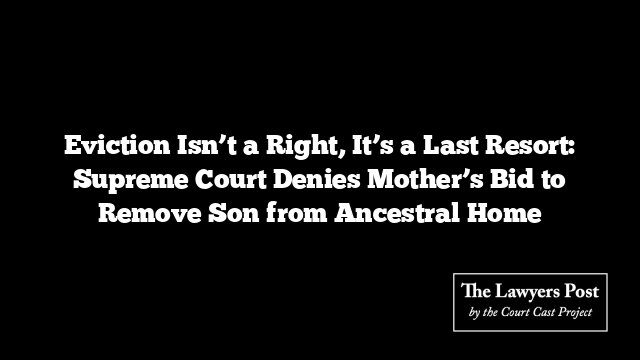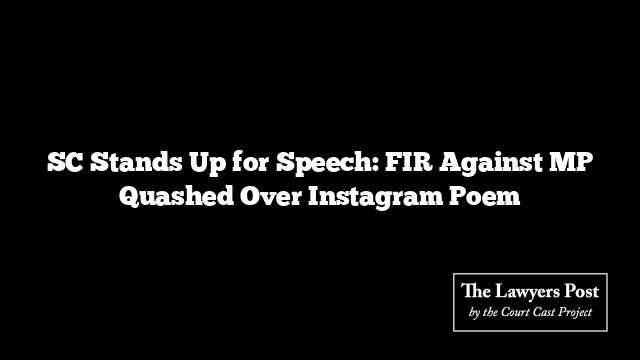In a judgment that cut through emotional turmoil with legal precision, the Supreme Court has ruled that elderly parents cannot automatically evict children from their homes under the Senior Citizens Act—unless the circumstances demand it.
The bench, comprising Justices Pankaj Mithal and SVN Bhatti, shut down a plea by an elderly mother seeking the removal of her son from their ancestral house in Uttar Pradesh. The strained parent-child relationship, while unfortunate, did not meet the legal threshold for eviction, the Court said.
At the heart of the matter was the Maintenance and Welfare of Parents and Senior Citizens Act, 2007. Often misunderstood as a green light for eviction, the Court emphasized that the law was designed for support—not displacement.
“The Act does not specifically authorize eviction proceedings. Maintenance, yes. Shelter, yes. But removal? Only when absolutely necessary for the safety and welfare of the senior citizen,” the bench clarified.
The case unraveled against a backdrop of family breakdown. The elderly couple had already secured a maintenance order from a family court, mandating their two sons to provide financial support. But things took a darker turn when the father filed for the eviction of one son—accusing him of mistreatment and neglect. The son, meanwhile, ran a utensils shop from a portion of the shared property and lived there with his family.
The Tribunal offered a compromise: no eviction, but clear boundaries. The son could operate his shop and continue living in his assigned quarters, but any further encroachment would require parental consent.
Unhappy with this, the parents escalated the matter. The Appellate Tribunal took their side and ordered the son’s eviction. The High Court, however, pulled back the reins, nixing the eviction while keeping the other conditions intact. Still unsatisfied, the mother brought the fight to the Supreme Court.
She leaned heavily on the Urmila Dixit ruling—a recent case that acknowledged a Tribunal may order eviction under the Act if necessary. But the Supreme Court underlined the keyword: may, not must.
“There was no compelling reason recorded by the Appellate Tribunal to show that eviction was essential for the mother’s protection,” the Court said. More so, the son’s claim over a share of the property was still being decided in a civil suit—hardly grounds for hasty eviction.
And then came a sigh from the bench—less legal, more philosophical.
“We speak of Vasudhaiva Kutumbakam—that the world is one family. But families themselves are cracking. We’ve gone from joint families to nuclear families, and now we’re hurtling toward one person, one family.”
That haunting observation, tucked at the start of the judgment, paints a stark portrait of modern familial fracture. In dismissing the mother’s appeal, the Court didn’t just preserve the letter of the law—it left a quiet elegy for what the idea of ‘family’ used to mean.





